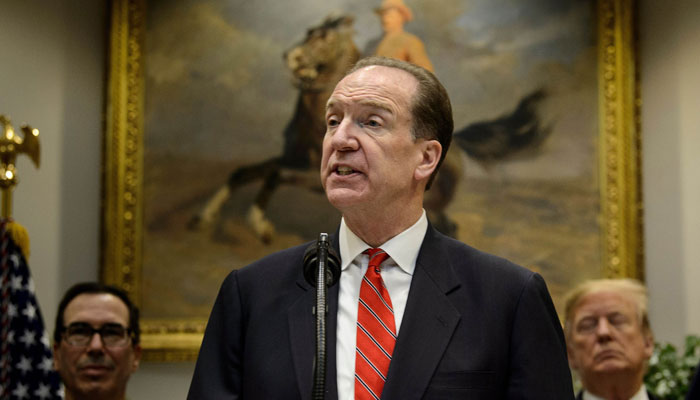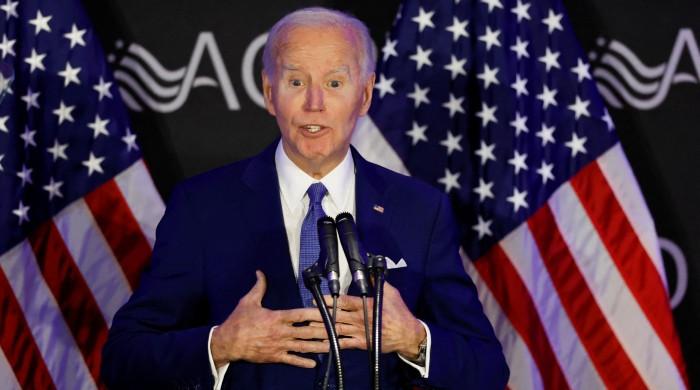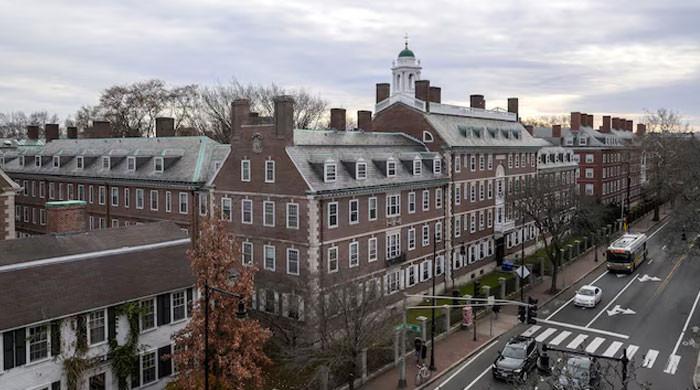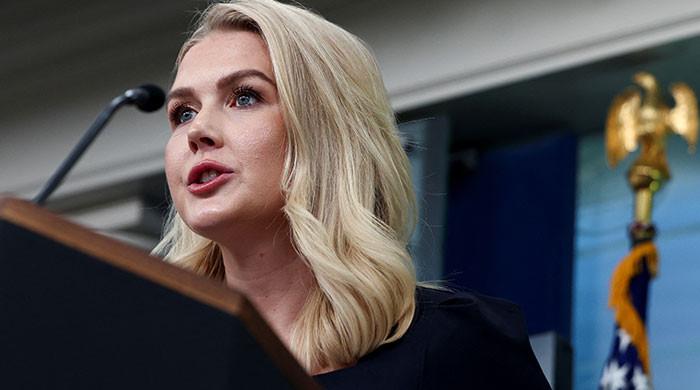COVID-19 could lead to 100m being pushed into 'extreme poverty', warns WB
WB president says situation makes it "imperative" that creditors reduce amount of debt held by poor countries at risk
August 21, 2020

WASHINGTON: World Bank President David Malpass on Thursday warned that the coronavirus pandemic may have led as many as 100 million people back into extreme poverty.
The Washington-based development lender previously estimated that 60 million people would fall into extreme poverty due to COVID-19, but the new estimate puts the deterioration at 70 to 100 million, and he said "that number could go higher" if the pandemic worsens or drags on.
The situation makes it "imperative" that creditors reduce the amount of debt held by poor countries at risk, going beyond the commitment to suspend debt payments, Malpass said in an interview with AFP.
Even so, more countries will be obliged to restructure their debt.
"The debt vulnerabilities are high, and the imperative of getting light at the end of the tunnel so that new investors can come in is substantial," Malpass said.
Advanced economies in the Group of 20 already have committed to suspending debt payments from the poorest nations through the end of the year, and there is growing support for extending that moratorium into next year amid a pandemic that's killed nearly 800,000 people and sickened more than 25 million worldwide.
But Malpass said that will not be enough, since the economic downturn means those countries, which already are struggling to provide a safety net for their citizens, will not be in a better position to deal with the payments.
Recession or depression?
The amount of debt reduction needed will depend on the situation in each country, he said, but the policy "makes a lot of sense."
"So I think the awareness of this will be gradually, more and more apparent" especially "for the countries with the highest vulnerability to the debt situation."
The World Bank has committed to deploying $160 billion in funding to 100 countries through June 2021 in an effort to addresses the immediate emergency, and about $21 billion had been released through the end of June.
But even so, extreme poverty, defined as earning less than $1.90 a day, continues to rise.
Malpass said the deterioration is due to a combination of the destruction of jobs during the pandemic as well as supply issues that make access to food more difficult.
"All of this contributes to pushing people back into extreme poverty the longer the economic crisis persists."
Newly-installed World Bank Chief Economist Carmen Reinhart has called the economic crisis a "pandemic depression," but Malpass was less concerned with terminology.
"We can start calling it a depression. Our focus is on how do we help countries be resilient in working out on the other side."
More debt transparency
Malpass said he has been "frustrated" by the slow progress among private creditors in providing comparable debt suspension terms for poor countries.
While the Institute for International Finance has set up a framework to waive debt service payments, as of mid-July member banks had not received any applications.
Having a clear view of the size of each country's debt and the collateral involved also are key to being able to help the debtor nations, Malpass said.
China is a major creditor in many of these countries, and the government has been "participating in the transparency process," but he said more needs to be done to understand the terms of loans in nations like Angola, where there are liens on the country's oil output.
Governments in advanced economies so far have been "generous" in their support of developing nations, even while they take on heavy spending programs in their own countries, Malpass said.
"But the bigger problem is that their economies are weak," Malpass said of the wealthy nations.
"The most important thing the advanced economies do for the developing countries is supply markets... start growing, and start reopening markets."











